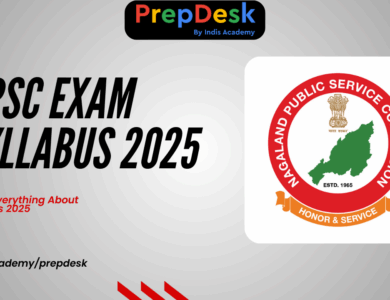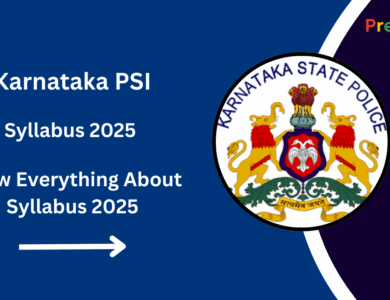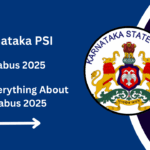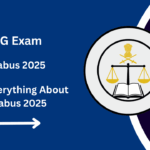KPSC KAS Syllabus 2025 – Prelims & Mains Exam Pattern & Topics
Explore the complete KAS Syllabus 2025 for various state services, including Karnataka, Kerala, Jammu & Kashmir, and Uttar Pradesh. Download official PDFs and detailed topic-wise breakdowns to enhance your preparation.
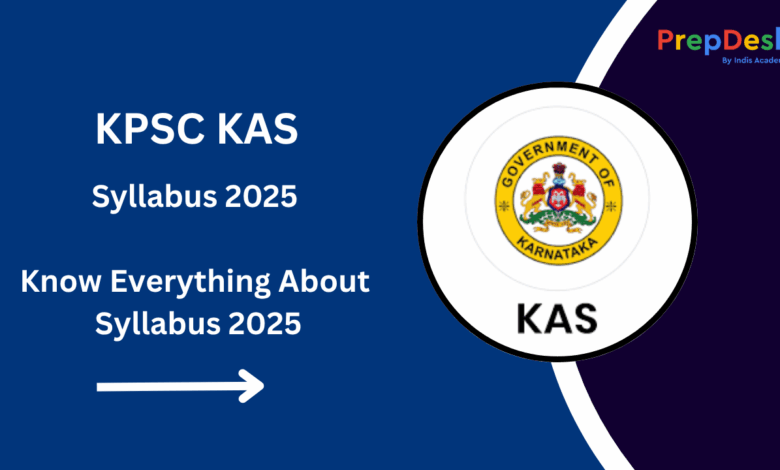
The Karnataka Administrative Service (KAS) is one of the most prestigious state civil services under the Karnataka Public Service Commission (KPSC). This comprehensive guide covers the entire KAS syllabus including Prelims, Mains, optional subjects, marks distribution, preparation tips, recommended books, and more.
1. What is KAS?
KAS is the entry-level administrative service of Karnataka State. Officers selected through this exam start as Sub-Divisional Magistrates and eventually progress to senior administrative roles, often competing for IAS cadre positions.
2. Exam Structure & Marks Distribution
| Stage | Description | Papers/Type | Marks | Duration | Qualifying Criteria |
|---|---|---|---|---|---|
| Prelims | Screening test to shortlist for Mains | 2 Papers – General Studies (MCQs) | 400 (200 each) | 2 hours each | Merit for Mains |
| Mains | Written descriptive exam | 9 Papers (2 Qualifying, 1 Essay, 4 GS, 2 Optional) | 1700 (Approx.) | 2–3 hours each | 7 papers counted for ranking |
| Interview | Personality test and administrative aptitude | Oral | 150 | ~30 minutes | Final merit ranking |
3. Prelims Syllabus in Detail
3.1 Paper I: General Studies
- National & International Current Affairs: Recent government policies, bilateral relations, world events
- Indian History: From ancient to modern, including Karnataka’s role in the freedom struggle
- Indian & World Geography: Physical geography, climatic zones, maps with Karnataka-specific geography
- Indian Polity & Governance: Constitution, political system, rights, and public policy
- Economy & Development: Basics of Indian economy, reforms, trade, rural development schemes
3.2 Paper II: Karnataka State & Aptitude
- Karnataka Current Affairs: State government schemes, policies, local issues
- General Science & Technology: Health, digital technologies, biotechnology advances
- Environment & Ecology: Biodiversity, pollution, conservation efforts, water resources
- Mental Ability & Reasoning: Numeracy, logic, data interpretation, problem-solving
4. Mains Syllabus Overview
4.1 Language Papers (Kannada & English)
Marks: 150 marks each | Duration: 2 hours
- Comprehension – 25 marks
- Precis Writing – 25 marks
- Language Use & Grammar – 25 marks
- Vocabulary – 25 marks
- Short Essay – 25 marks
- Communication Skills – 25 marks
Must secure minimum 35% marks to qualify.
4.2 Essay Paper
Marks: 250 | Duration: 3 hours
- Essay 1: National or International topic
- Essay 2: Karnataka or local issue
4.3 General Studies Papers (Each 250 marks, 3 hours)
| Paper | Topics Covered |
|---|---|
| GS-I: History & Cultural Heritage |
|
| GS-II: Geography, Polity & Governance |
|
| GS-III: Science, Technology, Environment & Development |
|
| GS-IV: Ethics, Integrity & Aptitude |
|
4.4 Optional Subjects (Two Papers)
Choose one subject from the following:
- Agriculture
- Anthropology
- Botany
- Chemistry
- Civil Engineering
- Commerce
- Economics
- Geography
- History
- Law
- Management
- Mathematics
- Mechanical Engineering
- Philosophy
- Physics
- Political Science & International Relations
- Public Administration
- Psychology
- Sociology
- Statistics
- Zoology
- Rural Development
- Sericulture
- Kannada Literature
- English Literature
5. Download Official KAS Syllabus PDF
For the detailed syllabus PDFs, visit the official KPSC website. You can download:
- Prelims Syllabus PDF
- Mains Syllabus PDF
- Optional Subjects Syllabus PDFs
6. Recommended Books for KAS Preparation
| Subject | Recommended Books |
|---|---|
| History & Culture | NCERT History (Class 6-12), Bipan Chandra’s “India’s Struggle for Independence”, Karnataka History by Suryanath Kamath |
| Geography | NCERT Geography (Class 6-12), “Physical Geography” by G.C. Leong, Karnataka State Geography guides |
| Polity & Governance | “Indian Polity” by M. Laxmikanth, Constitution of India, Karnataka Government Reports |
| Economics | “Indian Economy” by Ramesh Singh, Economic Survey of India, Karnataka Economic Survey |
| Science & Environment | “Environmental Studies” by Shankar IAS, NCERT Science books |
| Ethics & Aptitude | “Lexicon for Ethics”, Case studies from previous exams |
| Mental Ability & Reasoning | “Quantitative Aptitude” by R.S. Aggarwal, Reasoning books and practice sets |
| Essay & Language | Editorials from “The Hindu”, Language Grammar books, Essay compilation books |
7. Preparation Tips for KAS Exam
- Create a structured study plan: Allocate time between Prelims and Mains preparation carefully.
- Build strong fundamentals: Start with NCERT textbooks for clarity and concept building.
- Stay updated: Regularly read newspapers and magazines focusing on Karnataka and national affairs.
- Practice writing: Develop answer writing skills for Mains with timed practice sessions.
- Mock tests and revisions: Take weekly mock tests and revise key topics regularly.
- Focus on Karnataka-specific topics: Prioritize state history, geography, current affairs.
- Prepare for Ethics and Interview: Practice case studies and mock interviews.
8. Specialization Focus Areas
Candidates should focus on the following for enhanced scoring:
- Karnataka History and Culture: Deep knowledge of dynasties, social reforms, cultural evolution.
- Geography and Resources: Emphasize agro-climatic zones, natural resources, and state infrastructure.
- Ethics and Governance: Understand administrative ethics, transparency, accountability.
9. Conclusion
The KAS exam tests both depth and breadth of knowledge across diverse subjects. Success depends on strategic planning, thorough understanding, consistent practice, and staying updated with Karnataka-centric developments. Use this detailed syllabus guide, study the recommended books, practice regularly, and stay motivated. Your dedication will pave the way to becoming a successful Karnataka Administrative Service officer.
Good luck with your KAS preparation!

